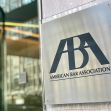U.S. Senate Democratic Whip Dick Durbin, Chair of the Senate Judiciary Committee along with U.S. Senator Chuck Grassley, member of the Senate Judiciary Committee, are behind the COVID-19 Bankruptcy Relief Extension Act that seeks to extend bankruptcy protections that were set in place during last year's round of Federal relief.
The act which passed in the House of Representatives would push bankruptcy relief offered through the March 2020 CARES Act and the December Omnibus Bill for another year. Currently, the relief in the March 2020 CARES Act is set to expire on March 27, 2021, while other provisions are set to expire in December 2021. Durbin explains, “Extending these temporary bankruptcy provisions until March 2022 will provide critical relief to families and small businesses facing hardships due to the ongoing COVID-19 pandemic.” Senator Grassley also emphasizes that the new act is necessary for helping small businesses and families navigate through the pandemic.
The significant relief provisions that were provided under the CARES Act along with the December 2020 Omnibus Bill focus a lot of attention on small businesses and families. The major modifications made to the Bankruptcy Code revolve around extending debt limitations and processes related to filing under Chapter 7 and Chapter 13.
Extension of Debt Limitations Under Subchapter V
In 2019, the Small Business Restructuring Act (SBRA) was passed and within the SBRA, there was a new Subchapter V added to the small business provisions of Chapter 11. As part of Subchapter V, small businesses were afforded a more streamlined, cost-effective process when navigating bankruptcy. As part of the streamlined process, creditor's committees are eliminated, disclosure requirements are limited, and the overall process is simplified. These changes allow business owners to have a greater chance at holding on to their equity after a Chapter 11 confirmation. One of the major drawbacks under Subchapter V is that eligibility required that an operation’s total debt limits had to be under $2,725,625. The bankruptcy relief provided in the CARES Act raised this limit to $7,500,000. This temporary increase in debt eligibility requirement is set to expire at the end of March unless the Bankruptcy Relief Extension Act becomes law.
Filing Proceedings
Under the CARES Act, both Chapter 13 and Chapter 7 bankruptcies were modified for struggling businesses and families during the coronavirus. As part of the modifications, any federal coronavirus relief payments that were received would not be considered as "income" under the definition of Chapter 13 and Chapter 7 bankruptcy. These federal coronavirus relief payments were also excluded from disposable income calculations for Chapter 13 filings.
Both families and businesses would also be able to take advantage of modification plan payments if they are seeking Chapter 13 bankruptcy. If families and businesses were facing financial hardships related to the coronavirus pandemic, then modification plan payments could be extended for an additional 7 years.
Bankruptcy relief provisions that were established in the December 2020 Omnibus Bill would be extended under the Bankruptcy Relief Extension Act, offering additional support to families. The provisions would prevent bankruptcy proceedings from treating federal relief payments from being treated as property of the estate. Families who are proceeding with a Chapter 13 could not be denied a discharge for other debts if they have been making all their plans payments but have not kept up with three or fewer mortgage payments due to financial hardships encountered because of the pandemic.
The provisions would also allow filers of Chapter 13 to find protection under the eviction moratorium and mortgage forbearance initiatives under the federal relief packages. Additionally, utility companies cannot terminate services to filers because provisions stipulate that individuals will not be required to produce a security deposit as they are going through bankruptcy proceedings.
The bill has received bipartisan support, and House Judiciary Committee Chairman Jerrold Nadler shared on the House floor, "[the provisions] help ensure that federal COVID-related relief payments are used by families to get through this pandemic instead of being seized by creditors. They also help people stay in their homes and ensure that their utilities are not shut off." Nadler adds, "Extending these necessary protections until March of next year will provide much-needed certainty that the bankruptcy system will remain responsive to debtors and creditors alike during this extraordinarily disruptive crisis."






